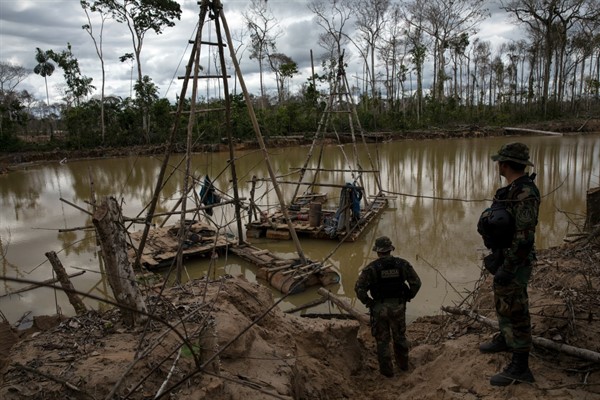Editor’s Note: Guest columnist Neil Bhatiya is filling in for Kimberly Ann Elliott this week.
Last week, the presidency of the Financial Action Task Force, the global intergovernmental standard-setter for combatting illicit financial threats, passed from China to Germany. The presidency of the FATF is an important platform for countries to highlight critical threats to the global financial system. Among Germany’s incoming priorities for its two-year term is a focus on the illicit financial flows behind many crimes related to the environment. Such a campaign is an overdue step to combat a lucrative but not widely understood criminal enterprise, one that has direct national security implications for the United States.
Environmental crime encompasses a wide variety of activities. In addition to wildlife trafficking, which was the subject of a report compiled by the outgoing Chinese president of the FATF, illegal logging, illegal mining, illegal fishing and the waste management industry have all been cited as dependable sources of revenue for illicit state and nonstate actors alike. Estimating the total value of dirty money from these crimes is difficult. Much of it is cash-based, and, to disguise its nature, this illegal trade is mixed in with perfectly legitimate commerce, making it difficult to “follow the money.” In calling for further action, the task force’s incoming German president, Marcus Pleyer, cited a range of between $91 billion and $259 billion annually. The extent to which those proceeds are funneled through the formal financial system is a serious gap in the global regime to combat money laundering.

